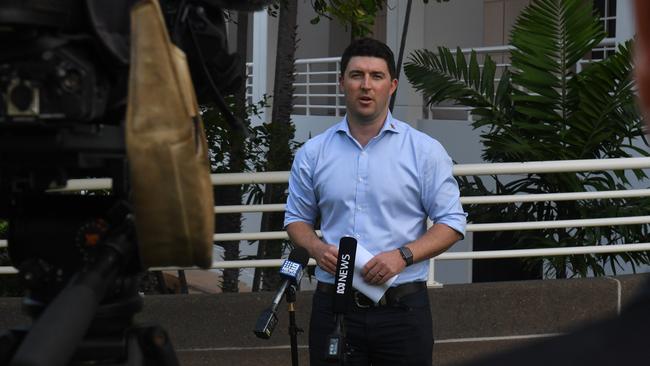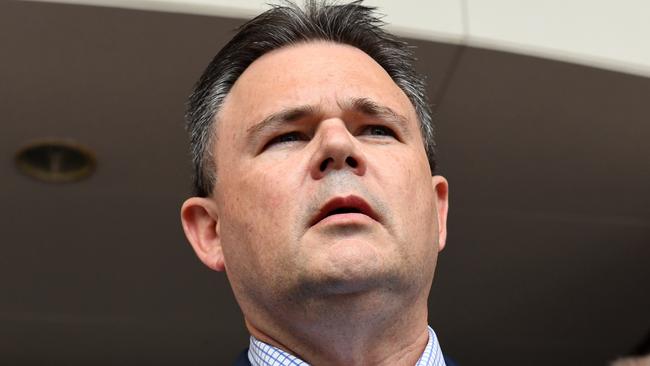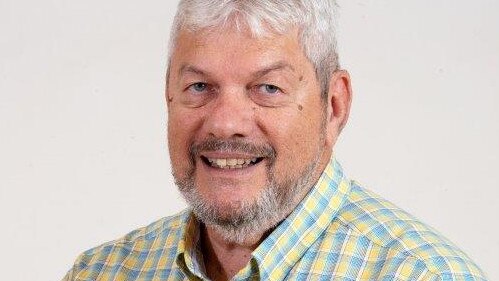Passing of new booze ban laws slammed as ‘disgraceful’ by social services
Social services have slammed the NT government’s rush to pass new liquor laws. Read more here.
Indigenous Affairs
Don't miss out on the headlines from Indigenous Affairs. Followed categories will be added to My News.
UPDATED: SOCIAL services have slammed the NT government’s rush to pass new liquor laws.
NTCOSS chief executive Deborah Di Natale said the passing of the legislation before consultation with community or Aboriginal services was disgraceful.
“At best the government’s process around these significant liquor changes lacks integrity,” she said.
“The NT government must begin genuine consultation with Aboriginal people as a matter of urgency.”
Ms Di Natale said alcohol had been restricted in Aboriginal communities for the past 15 years under historic NT intervention laws but the new laws passed by NT parliament on Tuesday night mean restrictions will be lifted on July 17.
Association of Alcohol and other Drug Agencies NT (AADANT) executive officer Peter Burnheim said the sector and communities raised “legitimate and significant concerns” about the lack of consultation.
“We, like the many other voices from across the community … are extremely disappointed this legislation has been pushed through without those concerns addressed,” Mr Burnheim said.
“The inevitable outcome of this change is that many communities will have a return of alcohol with all of the subsequent challenges this introduces.”
Mr Burnheim said the NT already had horrific rates of harm related to alcohol; family and domestic violence, health implications, road accidents and fatalities, community unrest and other harms would inevitably rise as result of alcohol returning to communities so abruptly.
Chief Minister Natasha Fyles said the new laws would provide a mechanism for Aboriginal communities – where the intervention enforced alcohol prohibition – to now ‘opt-in’ if they want to remain dry.
The legislation is in response to a sunset clause under the Commonwealth’s Stronger Future Bill that is due to end in July.
All areas that were previously General Restricted Areas (GRAs) under the NT’s Liquor Act before the Commonwealth law came into force, will automatically revert to their previous restrictions and will need to opt in remain dry.
Communities will need to apply for an Interim Alcohol Protection Authority by January 2023 to keep booze restrictions in place.
It will require an application from a member of the community, with written consent from a Traditional Owner or lease holder, to be submitted to the Alcohol Policy minister.
Ms Fyles said the Labor-led Stronger Futures legislation was one of the last remnants of the intervention.
“It was a race-based policy targeting Aboriginal Territorians with little to no engagement or consultation,” she said.
“This government will not support continuing the mandatory restrictions and obligations of the Intervention.”
COUNTRY LIBERAL PARTY VOTE AGAINST ‘WET’ COMMUNITIES:
THE Country Liberal Party will not support laws that could give Aboriginal communities access to alcohol if the historic intervention expires.
The Associations and Liquor Amendment Bill was labelled “poor policy” by the Opposition.
Opposition whip Joshua Burgoyne said there were a number of reasons the government had tabled the legislation.
“It hasn’t been consulted with properly and that’s why we will not be supporting the amendment,” Mr Burgoyne said.
“What this legislation will end up with is … a patchwork quilt of areas where you can drink and can’t drink. It will be extraordinarily difficult without the proper consultation, for people to understand what this legislation actually means for them.”
The Commonwealth’s Stronger Future Bill is set to expire in July and neither federal Labor or Liberals have indicated they will extend the legacy of the NT Intervention.

As a result, the Territory government has introduced changes to local liquor laws that will allow Aboriginal people a choice to remain ‘dry’ or introduce alcohol back into the community.
However, Mr Burgoyne said a number of stakeholders had told the CLP they wanted the legislation changed to allow communities to ‘opt out’ of the legislation rather than choose to ‘opt in’ and create a dry community.
“We support the right of people being able to choose what happens in their community, but what this legislation fails to do is consult with the very people that it will affect.”
Chief Minister Natasha Fyles said the government would continue to regularly communicate and consult with a broad range of stakeholders.
Ms Fyles said the government had contacted all affected communities to discuss the upcoming cessation of the Commonwealth Stronger Futures Act, and would continue to engage with representatives and landholders to support them in choosing to opt in if they wished.
“Some affected communities have already indicated preliminary intentions to opt into continuing restrictions,” she said.
“All communities which were declared General Restricted Areas (GRA) under the NT Liquor Act prior to the Stronger Futures Act will automatically revert to GRA status, and will not need to opt in.
“Over 100 major communities in the Territory will therefore be unaffected by this change and will remain under existing alcohol restrictions.
“Only those communities which were not covered by any restrictions before the Commonwealth laws were enacted are provided with a choice in this Bill to opt in if they wish to continue current alcohol restrictions.
“For communities which choose not to opt in to the continuation of alcohol restrictions, information and support will be provided to assist them to manage the risks associated with that decision.”
Araluen independent MLA Robyn Lambley described the government’s proposed changes as “lazy” and “Darwin-centric”, and listed a number of NT organisations which opposed the changes.
They included Danila Dilba, AMSANT and NAAJA.
“The welfare and safety of children must remain front and centre for all Governments,” Ms Lambley said.
“Any decision to lift alcohol bans in these Aboriginal living areas must be done using a caring and consultative approach.”
THE ARGUMENT ABOUT ‘OPT IN’ OR ‘OPT OUT’
Chief Minister Natasha Fyles, who has also been the Alcohol Policy Minister, said in the absence of the Commonwealth extending its powers under the Stronger Futures Bill, the NTG was aiming to provide a legal mechanism for communities to reamin dry.
“I am seeking further advice but my understanding is we cannot have legislation that specifically targets Aboriginal communities,” she said.
“I absolutely understand the views of those who are speaking in our community and I like them are passionate about alcohol policy, but we will continue to address alcohol policy. We know one of the most considerable factors is secondary supply, and we’re targeting that too.”
Both parties accept that the legislation change is complex and will be difficult to police regardless of whether it becomes an opt-in or opt-out.
CONCERNS ABOUT POLICING AND PROCESS
NT Police Association President Paul McCue said the legislation in its current form could have devastating effects on vulnerable communities. .
“As we have previously stated, we urge the government to hold off making any changes in the immediate future,” he said.

Mr McCue accused the government of not fulfilling its obligations under the Riley Review to conduct thorough consultation.
“Flicking the switch over night to potentially allow free movement of alcohol undoes all the hard (work) they have done to reduce alcohol related harm…”
Mr McCue urged the government to stop and listen to stakeholders, including their members who were concerned about the ramifications of the proposed legislation.
Alcohol related assaults in the Northern Territory has continued to climb, with 4287 reports filed between March 21 and Feb 22, an increase of 1.8 per cent on the year before.
Ms Fyles acknowledged further supports would be needed in remote communities to ensure public safety if the legislation was passed on Thursday.
“We know that most crime and antisocial behaviour in the Northern Territory comes from alcohol,” she said.
“Tragically, the domestic and family violence rates are way too high for our community; the basis is alcohol. As a government we have done more than any other government and we will continue to tackle the hard issue of alcohol policy, it needs to change.”
ABORIGINAL ORGANISATIONS CALL FOR URGENT CHANGES TO LIQUOR LAWS
INITIAL: REMOTE communities could have access to alcohol in coming weeks if new laws pass NT parliament this Thursday.
The Associations and Liquor Amendment Bill 2022 aims to lift the ban of alcohol in remote communities, however the current draft has caused widespread concern among social services.
In an open letter to former Chief Minister Michael Gunner, a number of experts from across the social and legal sector said the bill “created confusion” and would “lead to increased alcohol-related harm” in communities who did not have safeguards in place.
“We have several questions regarding the process to date, and…proposed future processes set out in the bill in response to the cessation of Alcohol Protected Areas (APAs) and the establishment of Interim Alcohol Protected Areas (IAPAs),” the letter reads.
“It is our view that, in collaboration government, non-government alcohol and other drugs sector and Aboriginal community-controlled organisations should be closely involved in the planning and development of alcohol policy that directly affects communities.”
Social services have called for an urgent roundtable with both federal and territory government representatives. They are concerned the new legislation makes it difficult for communities who want to retain ‘dry’ status.
The new Chief Minister, Natasha Fyles said until last week the Department of the Chief Minister and Cabinet had been “leading conversations with stakeholder groups and affected communities,” and this week she planned to get across “all the issues impacting Territorians.”

AMSANT chief executive Dr John Paterson said an amendment must be made before the bill goes to parliament this week.
“We want the ‘opt in’ clause to be changed to an ‘opt out’ clause,” he said.
“We want the current APAs extended for two years...to give our communities time to properly consider the issues before making a decision.”
Dr Paterson said the expiration of the Stronger Futures Bill – originally the Howard Government Intervention – would spark significant changes, and the legislative response from NTG “couldn’t be rushed”.
Central Australian Aboriginal Congress (Congress) said if the NTG’s amendments were passed increased crime, anti-social behaviour and violence would follow.
“The ‘rivers of grog’ will once again flow through our communities,” said Congress chief executive Donna Ah Chee.
“Since NTG’s alcohol reforms of 2018, we have made good progress on reducing alcohol-related harm, and the introduction of the full-time Police Auxiliary Liquor Inspectors (PALIs) at bottle shops has been a big part of this.”
Congress joined with AMSANT, NAAJA, Aboriginal Housing NT, NTCOSS and PAAC who want the current bill withdrawn and further consultation undertaken.
Chief Minister Natasha Fyles said under her government the intervention will not continue.
“We are not going to tell Aboriginal communities what to do. We are not going to decide for them whether they are dry communities or not,” she said.
“The Commonwealth’s Racial Discrimination Act 1975 was suspended in the Northern Territory in order for liquor restrictions to be implemented and continued under the Stronger Futures Act. These policies will not be unilaterally imposed under the Territory Labor Government.”




